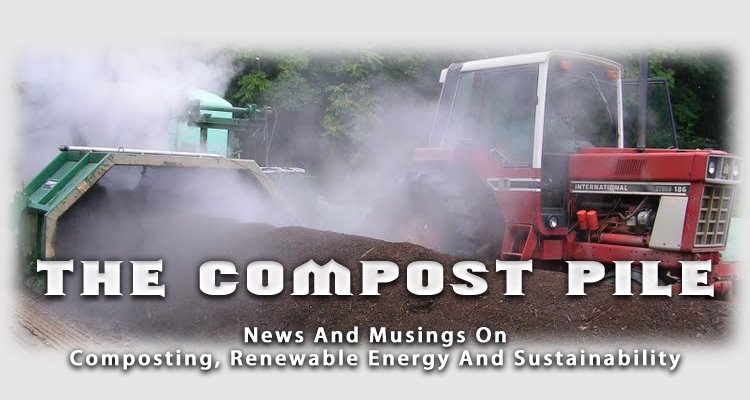 ngs.
ngs.A good place to start is Val di Fiemme, a valley in the Dolomites (part of the Alps) in northern Italy. In 2008, the valley averaged 82 percent waste diversion, the highest in Italy. Similar to other Italian source separation schemes, each household is given a vented kitchen scrap collector, a small curbside organics bin (brown), and a residual waste cart. Small
 collection
collectionvehicles are able to navigate the narrow medieval streets.
A combination of several initiatives have led to the community's success. Residents are given 200 compostable bags per year (made from Mater-Bi), and there is a ban on plastic bags at supermarkets (only reusable bags and compostable bags permitted). Organics are collect is free, whereas trash collection is charged by volume.
One of the interesting facets to Val di Fiemme is that it's a popular tourist destination, both in the winter for skiing and in the summer for hiking. During those times, the
 year-round population of 20,000 doubles. Tourist are given compostable bags, as well as cardboard boxes for their organic waste -- no collection pail abandoned on the street, when they leave. Tourists are also given pink trash bags, different from typical residents, which are to left on the curb witho
year-round population of 20,000 doubles. Tourist are given compostable bags, as well as cardboard boxes for their organic waste -- no collection pail abandoned on the street, when they leave. Tourists are also given pink trash bags, different from typical residents, which are to left on the curb witho ut a bin. Trash on the street in other colored bags is considered litter, to encourage use of the system.
ut a bin. Trash on the street in other colored bags is considered litter, to encourage use of the system.Other campaigns include encouragement of tap water instead of bottles, as well as bulk items at supermarkets to reduce packaging. Bulk dispensing includes typical items such as cereals, but also wine and soap.
Most notable of these bulk dispensers is fresh, raw (unpasteurized) milk available at some sto
 res. One local farmer is assigned to each store, providing fresh milk supplies daily, and customers use refillable glass bottles. The milk quality is controlled at the farm, so there is no need for pasteurization, and the customer knows which farm the milk is coming from.
res. One local farmer is assigned to each store, providing fresh milk supplies daily, and customers use refillable glass bottles. The milk quality is controlled at the farm, so there is no need for pasteurization, and the customer knows which farm the milk is coming from.The largest area of organic waste remaining in the residual stream are baby diapers, so the public company in charge of waste collection now promotes reusable cloth diapers with compostable liners -- families are given an initial set of cloth diapers as a welcoming gift for each newborn!

Val di Fiemme has a strong lumber business, resulting in large quanities of wood waste. There is now a biomass powered boiler facility that provides municipal heat via underground pipes to the ho
 uses for the cold winters. Upgrades are underway to make it a combined heat and power facility. There are some PVC solar panels on the roof.
uses for the cold winters. Upgrades are underway to make it a combined heat and power facility. There are some PVC solar panels on the roof.






Rhodes, thanks for spreading the word. This information is remarkable, practical and inspiring. It is exciting to hear of a city that has undertaken a holistic approach to waste: one that ends up supporting community building and health while supporting the environment.
ReplyDeleteThis information has been very helpful since I was looking into this subject and couldnt find any good information! Thanks a lot!
ReplyDeleteRhodes, this is crazy. How is all this funded?
ReplyDeleteHi Bukra. That's a very good question.
ReplyDeleteThere is an annual fixed fee of 80 Euros per four person family, which covers street cleaning and supplies (bins, compostable bags, etc.), and then a variable fee based on the volume of waste produced.
An article in BioCycle offers a much more detailed description of all of the programs in Val Di Fiemme:
http://www.jgpress.com/archives/_free/001956.htm